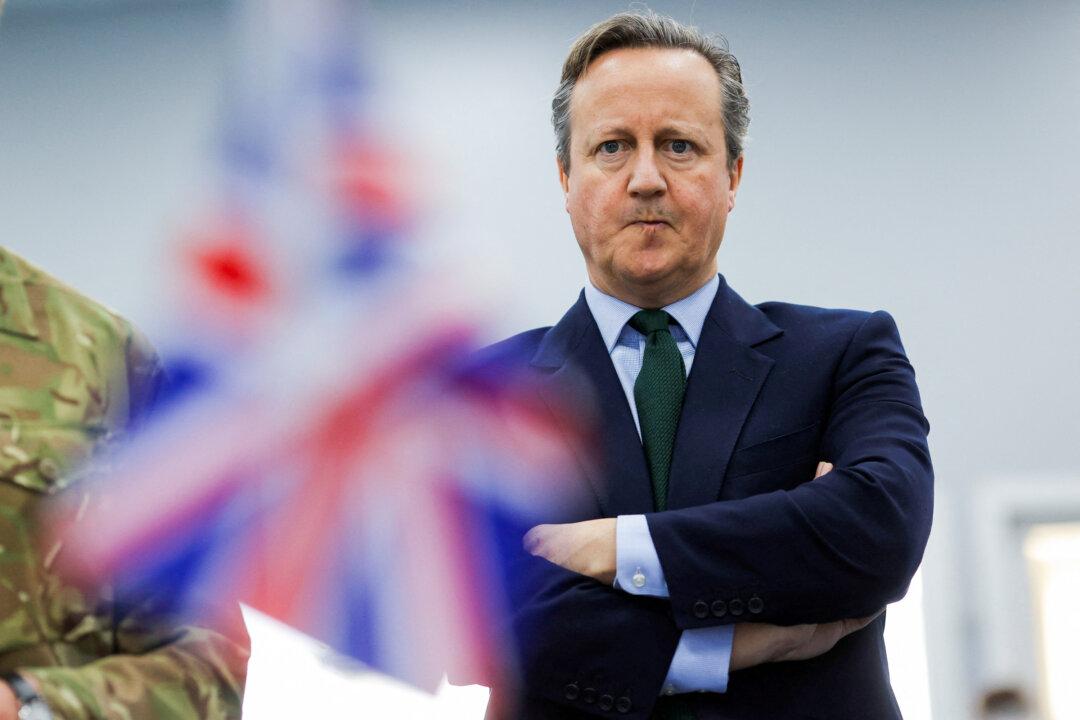UK Foreign Secretary David Cameron has issued a stark warning about the increased dangers facing the world from multiple conflicts and Beijing’s aggression, saying, “The lights on the global dashboard are flashing red, so it is a much more dangerous, difficult, uncertain world.”
“We’ve not only got the situation in Europe with Putin’s illegal invasion of Ukraine … we’ve also got the crisis between Israel and Gaza [and] more wars in Africa and Myanmar.





